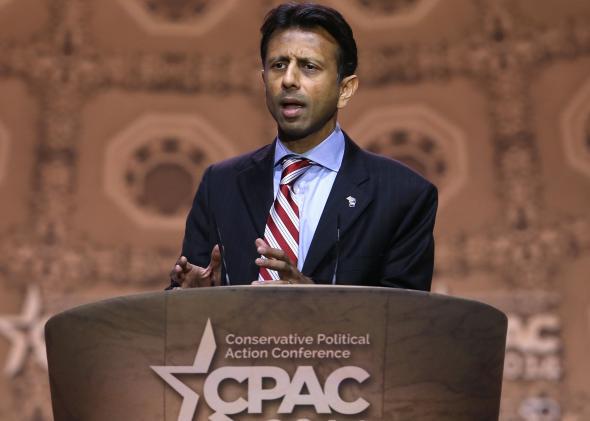The death-penalty drug fight has engulfed a third state. First it was Texas. Then Oklahoma. Now Louisiana.
On Thursday a panel of federal judges refused Louisiana’s request to conceal its execution drug formula and drug supplier from inmates the state was preparing to kill. On Friday night the Louisiana Department of Corrections gave in. It will accept the court’s ruling.
The further this fight spreads, the clearer the pattern becomes: States that practice capital punishment, and fight to hide the identities of their lethal drugs and suppliers, are the same states that restrict abortion in the name of life.
If you’re late tuning into this topic, here’s a quick overview, courtesy of Reuters:
Several states have been scrambling to find new suppliers and chemical combinations after drug makers, mostly in Europe, imposed sales bans because they objected to having medications made for other purposes being used in lethal injections.
The states said they have looked to alter the mix of drugs used for lethal injections and keep the suppliers’ identities secret. They have also turned to lightly regulated compounding pharmacies. Those pharmacies can mix drugs, often to meet needs not available in prescription medication, the pharmacy compounding accreditation board said.
But lawyers for death row inmates have argued that keeping information secret was a violation of due process protections in the U.S. Constitution. They also argued that drugs from compounding pharmacies can lack purity and potency and cause undue suffering, in violation of the Constitution.
The three states at the center of this battle (Texas, Oklahoma, Louisiana), along with two others that suppress information about their execution methods and suppliers (Arkansas and Missouri), are among the most “pro-life” in the country. All five states scored among the top 20 in the most recent apples-to-apples comparison of state polling data, released in 2005 by SurveyUSA. (States were ranked in order of the percentage of respondents who said they were pro-life when asked, “On abortion, are you pro-life? Or pro-choice?”) Four of these five states are clustered in the seven-state “South Central” region, which, in an analysis of 2012–2013 survey data by the Pew Research Center, significantly outscored all other regions in the percentage of respondents who said abortion should be illegal. Second prize went to the Midwest, which included Missouri. In fact, Pew found that in the last two decades, the South Central and Midwest regions have become even more opposed to legal abortion than they already were.
If you compare states that have the death penalty with states that restrict abortion, you’ll see the same pattern. Of the 33 states that restrict public funding of abortion, 27 permit capital punishment. Of the 17 states that don’t restrict abortion funding, 12 don’t permit capital punishment. And of the 39 executions carried out last year, 38 occurred in states that have banned “partial-birth” or second-trimester abortions.
Why do “pro-life” states do so much of the death-row killing? Many liberals think it’s because pro-lifers don’t care about life after it’s born. That’s a good sound bite, but it distorts the truth. The real reason is that the “pro-life” coalition is an alliance of at least two different constituencies. One is what I’d call authentic pro-lifers—people who believe that all human life is sacred, including the lives of murderers. The Catholic Church is the principal exponent of this idea.
Another part of the “pro-life” coalition is what I’d call moral conservatives. For these people, the ultimate value isn’t life. It’s right and wrong. They believe in protecting fetal life not just because it’s life, but because it’s innocent. From this point of view, if you commit a murder, you lose your innocence. You deserve to be punished. In some cases, you deserve to die.
A decade ago, when I was looking for a place to study the intersection of abortion and death-penalty politics, Louisiana was the most compelling story. It was the most aggressive killer of felons, having mandated the death penalty even for nonlethal aggravated rape. It was also, as measured by polls, the most anti-abortion state in the country. These two cultures coexisted—indeed, for the most part, they were one culture—because the dominant constituency in Louisiana didn’t believe in the sanctity of life. It believed in punishment. That’s why the most effective argument against abortion bans in Louisiana wasn’t that women should have a right to choose, but that exceptions should be made for rape or incest. Those scenarios conjured up images of innocent women and criminal men. They confounded moral conservatives by turning abortion rights into an issue of crime and self-defense.
It’s perfectly natural, then, to hear Louisiana’s governor, Bobby Jindal, preach against abortion while trying to reinstate the death penalty for rape. And it’s just as fitting to see Louisiana join Texas and Oklahoma on the list of states fighting to restrict abortion while practicing capital punishment and protecting its drug suppliers. For the politicians who rule these states, the fight, ultimately, isn’t about life. It’s about sin.
